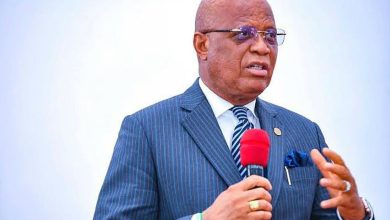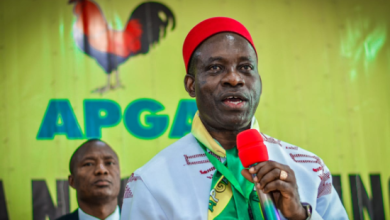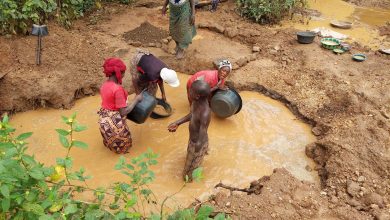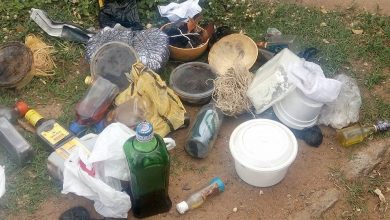UNODC Alarms: 60% of Boko Haram Victims Are Youths, Calls for Urgent Child-Centered Justice Reforms
Nigeria’s youth bear the brunt of Boko Haram’s insurgency, with 60 percent of affected victims being young people, according to the UN Office on Drugs and Crime.
At a global justice congress in Borno, UNODC urged urgent protection for children, highlighting how many are abducted, trafficked, and forced into armed groups since the crisis began.
The United Nations Office on Drugs and Crime (UNODC) has sounded the alarm over the devastating impact of the Boko Haram insurgency on Nigeria’s youth, revealing that an overwhelming 60 percent of those affected by the ongoing conflict in the North-East are young people.
This alarming statistic was disclosed by the UNODC Country Representative to Nigeria, Mr. Cheikh Ousmane Toure, on Monday during the 5th World Congress on Justice with Children. The event, held in Maiduguri, Borno State, was centered around the theme “Advancing Child-Centred Justice: Preventing and Responding to Violence Affecting Children within Justice Systems.”
According to Toure, children and youths in Borno, Adamawa, and Yobe States the three states most affected by Boko Haram’s reign of terror have borne a disproportionate share of the suffering caused by the insurgency since it erupted in 2009. Many of these children have been abducted, trafficked, and forcibly recruited into armed groups or criminal networks.
Citing credible data, Toure highlighted that no fewer than 1,385 children were conscripted into these violent groups between 2017 and 2019 alone. These figures, he stressed, represent more than just statistics they are individual stories of children whose lives, hopes, and futures have been severely disrupted.
“These figures are not just numbers on a page,” he emphasized. “Each one represents a child someone whose future is endangered, whose potential contribution to society is at risk. Youths make up roughly 60 percent of those who have been affected. Nigeria’s development hinges on how well it protects and empowers its young population.”
Toure lauded the resilience of youths in the region and highlighted the Youth Peace Champions, a youth-led initiative supported by UNODC, as an example of how young Nigerians are stepping up to advocate for peace, justice, and child protection. These youth leaders, he said, are mentoring their peers, building awareness, and promoting justice systems that heal rather than harm.
“These courageous young people are helping to build back hope,” Toure said. “They are proving that inclusive development can be achieved from the grassroots, and that justice can be a tool for healing not just punishment.”
Since assuming leadership of UNODC’s Nigeria office in October 2024, Toure has placed significant emphasis on youth and women-centered programs, stating that every UNODC intervention in the country must yield tangible, measurable outcomes especially for marginalized groups such as youth, women, and persons with disabilities.
He also expressed hope that the model of the Youth Peace Champions in the North-East would be replicated in other parts of the country, including the North-West, North-Central, and Southern regions.
“This is the kind of inclusive and forward-thinking approach Nigeria needs now more than ever,” Toure stated. “We must elevate the voices of our youth not just in local communities but on national and global platforms.”
Toure further urged government authorities, justice sector players, development partners, and civil society organizations to go beyond symbolic gestures and begin to implement concrete, impactful actions to protect children’s rights and prevent further exploitation.
“The protection of children must be viewed as a national imperative,” he said. “Prevention cannot stop at declarations, it must be backed by real resources, unwavering political will, and measurable accountability.”
The congress brought together a wide array of stakeholders, including legal experts, civil society leaders, youth advocates, and international development agencies, all united in the mission to build a justice system that respects the rights of children, prevents violence, and empowers Nigeria’s next generation to thrive.
Borno State Governor Babagana Umara Zulum, who was represented by the State Commissioner for Justice, Hauwa Mohammed, also addressed the gathering. He assured participants that the state government remains committed to placing children’s welfare and justice at the forefront of its agenda.
Zulum acknowledged the profound emotional, psychological, and physical trauma children in Borno have endured due to over a decade of insurgency. He pledged that no child would be left vulnerable to exploitation or forced recruitment into armed conflict under his watch.
“We are determined to protect our children,” Zulum said. “The Ministries of Justice and Women’s Affairs and Social Development will work in tandem to ensure that these children receive the justice, education, and social support they deserve.”
The event was jointly organised by UNODC, in collaboration with the governments of Borno, Adamawa, and Yobe States, as well as Strive Juvenile, Justice for Children, and funded by the European Union.
The congress concluded with a shared resolve among participants to accelerate justice reforms and community-led efforts that prioritize the dignity, safety, and development of Nigeria’s children especially those caught in the crossfire of violent conflict.



